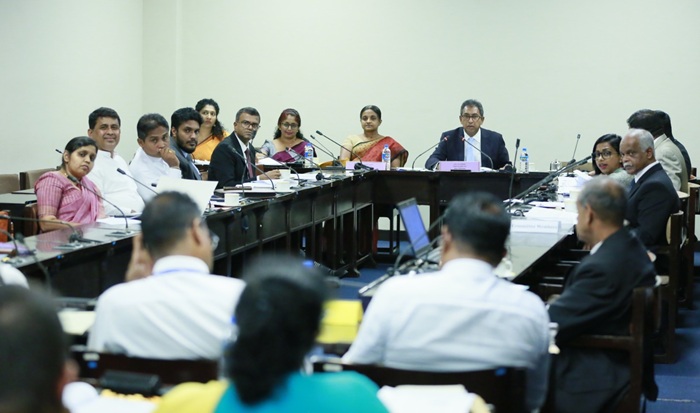
The Parliamentary Committee on Public Finance (COPF) has approved the resolution for the revision of the limits of several Advance Accounts of ministries and departments, including the Bribery Commission and Sri Lanka Customs.
According to a Parliament statement, the COPF approved Resolutions under Section 8 of the Appropriation Act No. 34 of 2023 to revise the limits of several Ministries and Departments for the year 2024.
This approval was granted at a recent meeting of the COPF held in Parliament this week (20 May), chaired by opposition MP Harsha de Silva.
The revision of the limits of advance accounts of several Ministries and Departments for the year 2024 has already been set, and under the provisions of the Appropriation Act, the Minister of Finance is empowered to revise these limits of advance accounts by way of a Resolution based on emerging needs of the relevant year. Officials, in providing clarification on the proposed revisions, further stated that these revised limits must be presented to Parliament for approval.
Accordingly, advancing monies to be used in bribery detection as bribes – Commission to Investigate Allegations of Bribery or Corruption, printing and publicly and sales of publications advance account – department of educational publications, stores advance account (explosive items) – Sri Lanka navy, prisons industrial and agricultural undertakings – departments of prisons, seized and forfeited goods advance account – Sri Lanka customs, miscellaneous advances – department of state accounts, railway stores advance account department of Sri Lanka railways, stores advance account – government factory, government factory work done advance account – government factory, advances to public officers received the approval of the COPF.
Commenting on the advancing monies to be used in bribery detection as bribes – Commission to Investigate Allegations of Bribery or Corruption, the Committee Chair stated that the COPF would extend full cooperation for any task undertaken to curb corruption.
Furthermore, during the Committee’s discussion on the advance account of Sri Lanka Customs, the officials were questioned regarding the importation of motor vehicles. The Chair inquired into the tax imposed on both registered and unregistered vehicles and whether the revenue from VAT on used and short-distance driven vehicles was being properly collected and whether such tax collection was equitable.
Officials informed the Committee that there is a variation in taxes imposed on used vehicles that are not registered and that have been driven only short distances. The Chair pointed out that, as the government expects substantial tax revenue from vehicle imports, the country is losing significant revenue under the current situation. Accordingly, the Chair instructed officials from the Sri Lanka Customs Department to submit a report to the Committee on the taxes collected from a sample of imported used vehicles. (Newswire)
